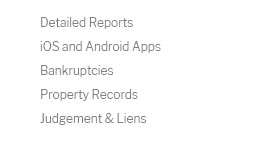 |
 |
|---|
|
|
|---|
 |
 |
 |
 |
|---|---|---|---|
 |
 |
 |
|
 |
|||
 |
 |
 |
|
 |
|||
 |
 |
 |
|
 |
|||

richland county ohio public records guide for residents and researchersUnderstanding what you can accessIn Ohio, most government documents are open to the public, and Richland County follows the same state transparency standards. Common requests include property deeds, court dockets, and certain criminal or civil filings. Some materials are restricted by law-think juvenile data, Social Security numbers, or active investigations-so expect redactions when privacy rules apply.
How to get startedYou can submit a request in writing, by phone, or in person to the appropriate office-Recorder, Clerk of Courts, Probate Court, or the agency that created the record. Provide names, parcel numbers, case IDs, and date ranges to narrow the search. Agencies may charge nominal copy fees; inspection on site is often free. For faster results, ask for electronic copies, specify format, and note that under the Ohio Public Records Act you do not need to state a reason. If a request is denied, ask for the specific legal exemption cited and how to appeal.
|
|---|